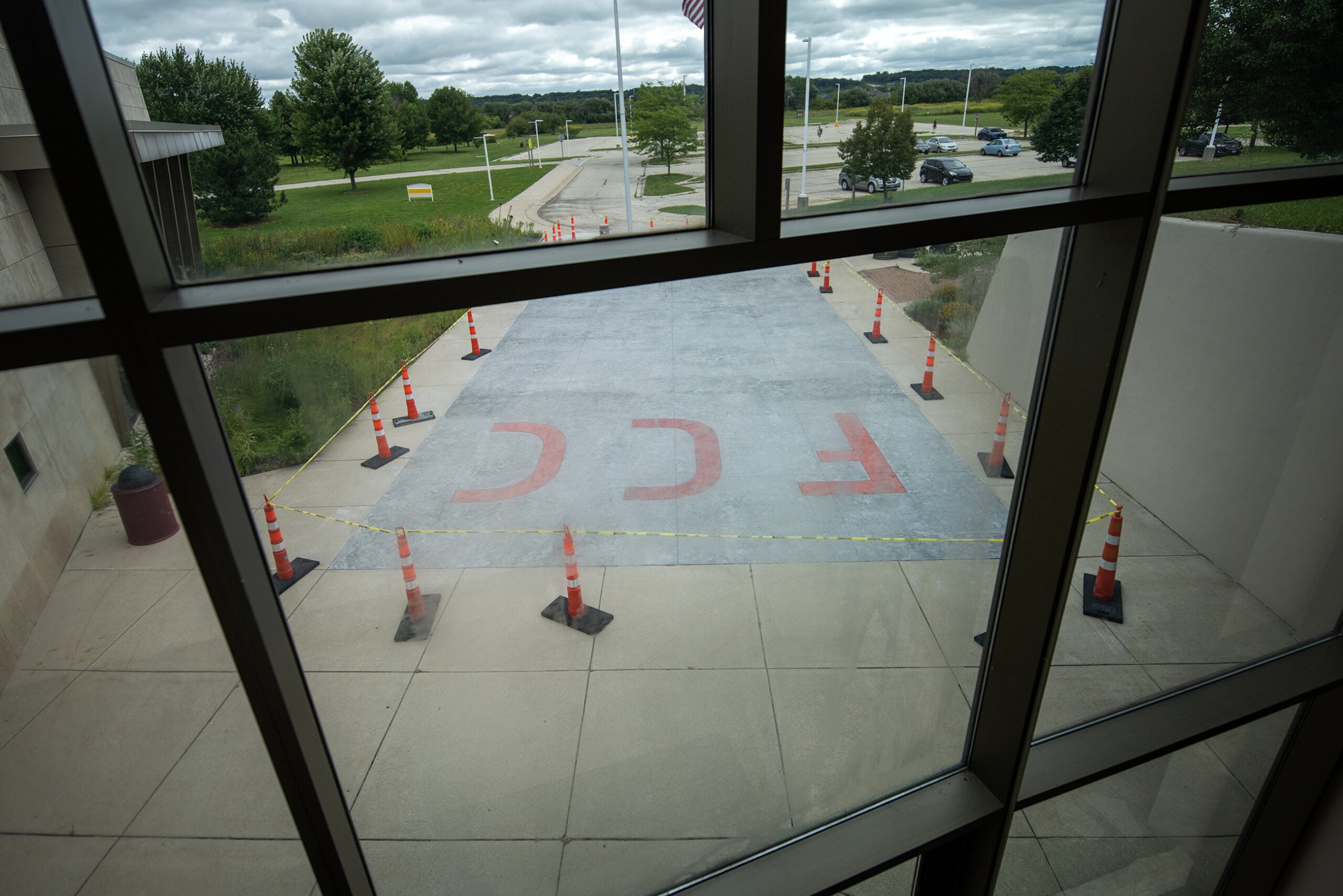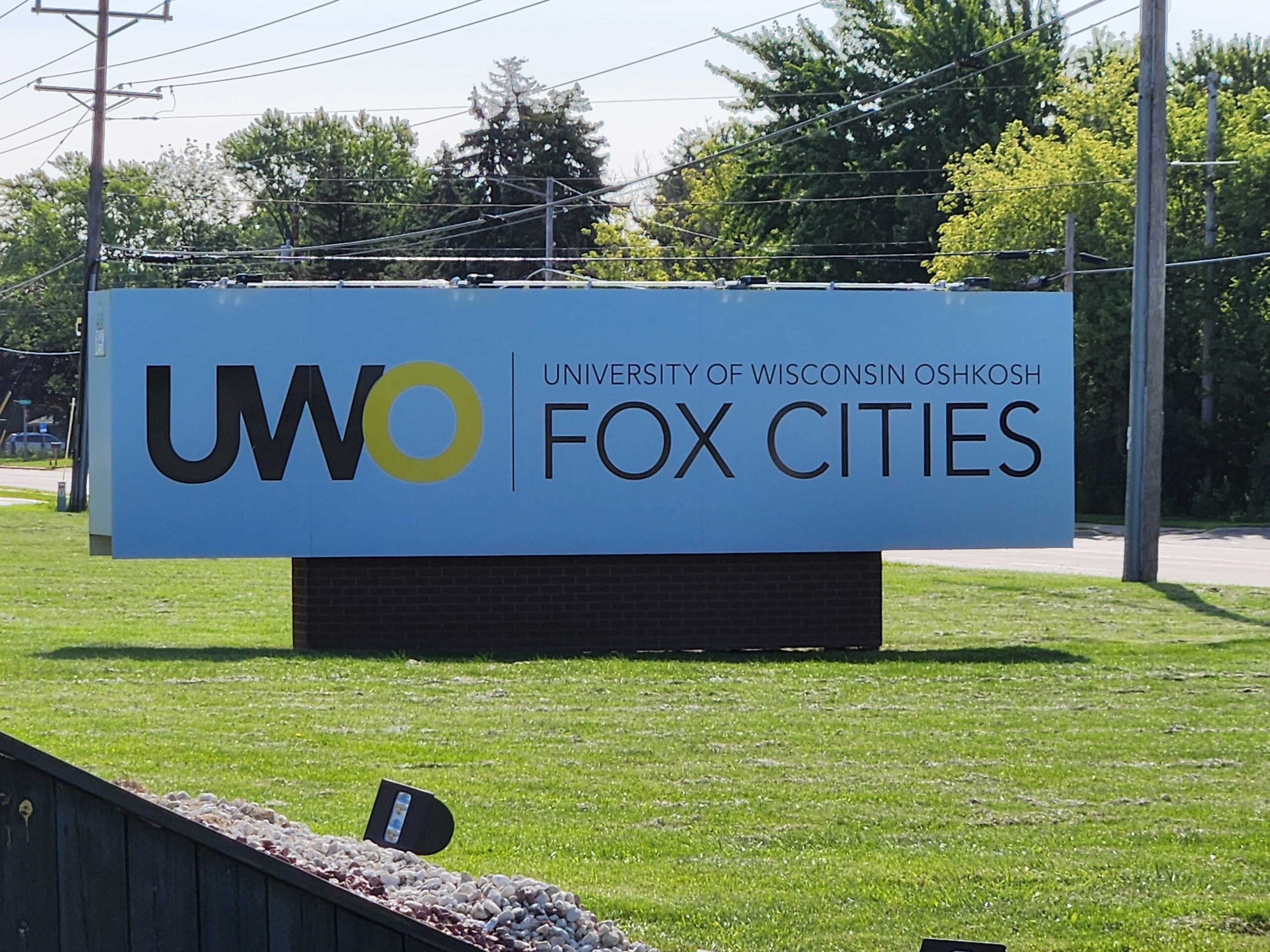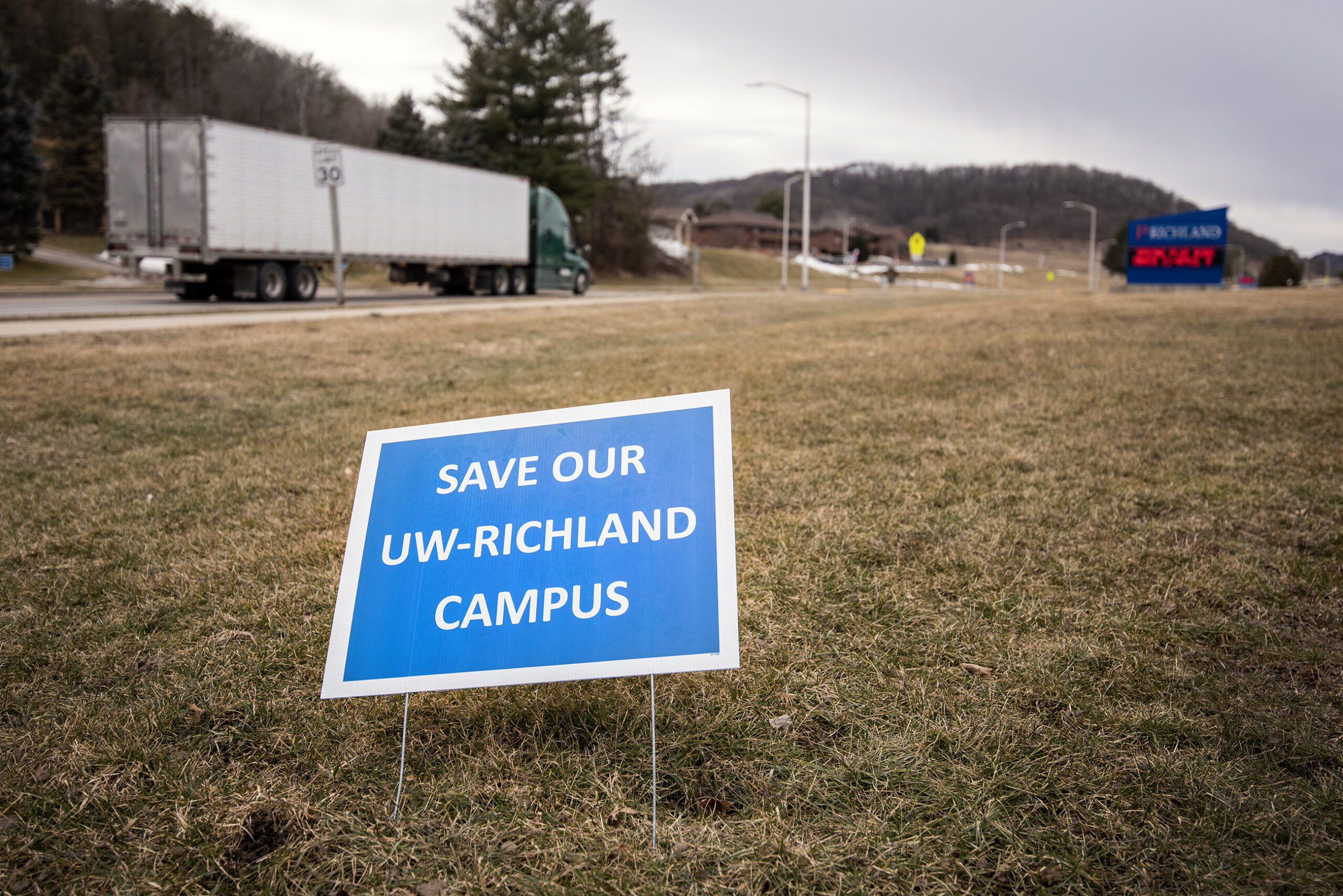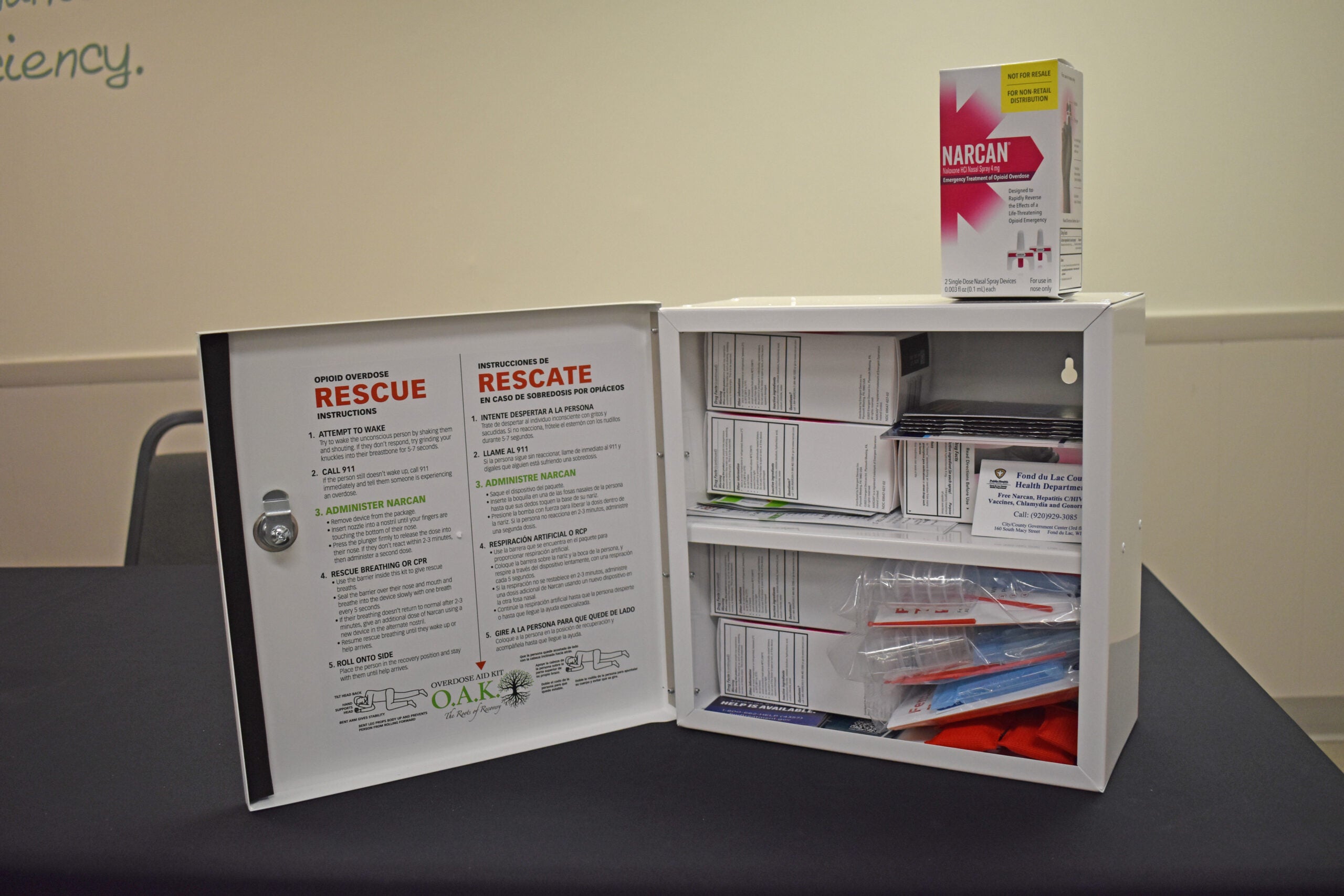Caution tape surrounded a portion of concrete sidewalk leading into the main entrance of what used to be the University of Wisconsin-Oshkosh’s two-year campus in Fond du Lac, which closed at the end of June.
The tape outlined new concrete slabs bearing the letters “FCC,” which stands for Fond du Lac County Campus. The county poured the new concrete this summer as part of its redevelopment plan for the campus.
“That was a big statement for us because that showed us, ‘This is it. We’re moving forward,’” said County Executive Sam Kaufman. “This is now our campus. It’s no longer Oshkosh. It belongs to us.”
Stay informed on the latest news
Sign up for WPR’s email newsletter.
Fond du Lac is the first county in the state to approve plans for a shuttered two-year UW campus. The county plans to transform the former academic site into a community campus with government offices, a law enforcement training facility, performing arts center, corporate meeting space and community sports complex.
It’s one of six two-year campuses in the Universities of Wisconsin system to have closed or announced closure plans due to declining enrollment and budget shortfalls.
Beyond Fond du Lac, the affected campuses are UW-Platteville at Richland, UW-Oshkosh Fox Cities, UW-Green Bay at Marinette, UW-Milwaukee at Waukesha and UW-Milwaukee at Washington County. Officials in those counties are in various stages of figuring out what to do with the properties, which are primarily county-owned.
In late 2022, UW-Platteville’s branch campus in Richland Center was the first to announce the end of in-person instruction. By October 2023, the university system revealed Richland would close, and in-person instruction would end in Fond du Lac and Washington County. Over the last year, similar announcements followed in Marinette, Waukesha and Menasha.
The closures have left counties saddled with facilities that could fall into disrepair if they remain vacant for too long.
Some officials expressed frustration with how the university system has handled the closures. And a few, including Kaufman, expressed optimism that local leaders can transform the shuttered campuses into something new.
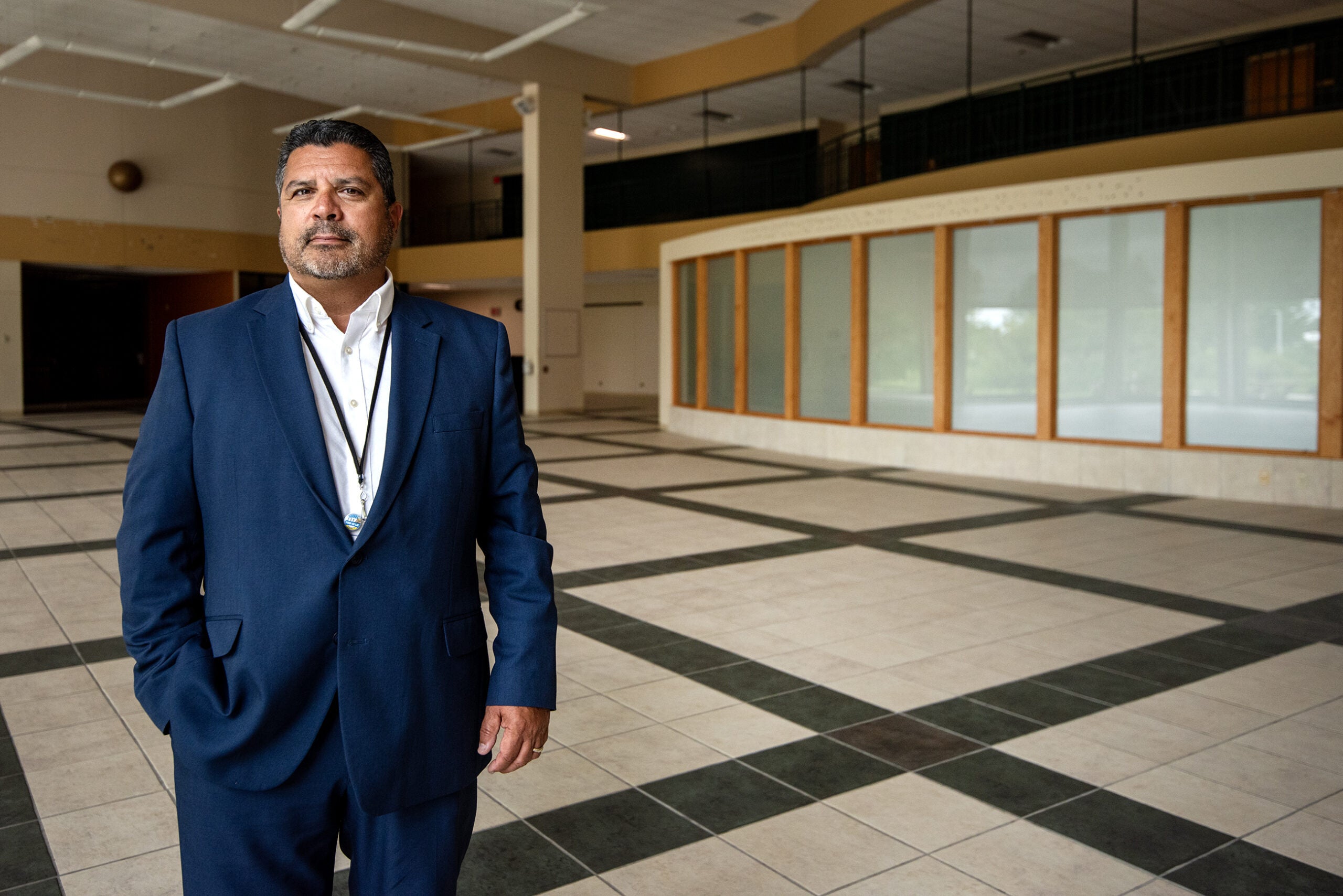
Fond du Lac’s plan taking shape
In response to Universities of Wisconsin President Jay Rothman’s announcement that the Fond du Lac campus would close by June 2024, Kaufman and his staff began crafting a plan to prevent the buildings from falling into disrepair.
In June, he presented his plan to transform the campus to the county board. On July 16, the board voted 18-5 to approve the proposal.
The plan calls for converting some classrooms to state and county offices, turning the performing arts center and library into a community events center, converting the gymnasium into a sports complex and selling some land parcels for senior housing, Kaufman said.
It would also convert an arts building into a training center for police and correctional officers.
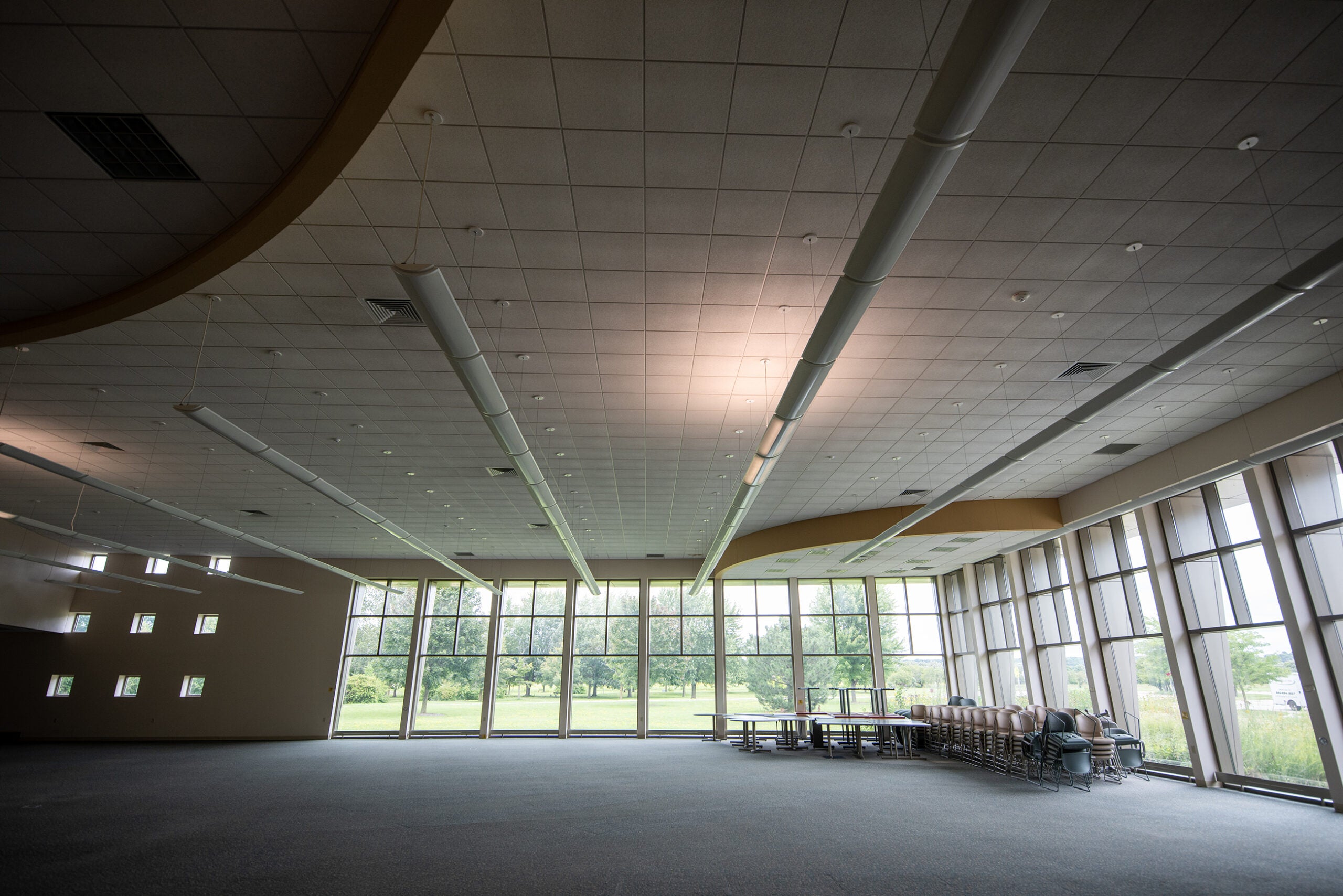
Kaufman said the county is in talks with the state Department of Workforce Development to lease office space in the campus for five years.
He’s received a warm response from the local business community regarding the plans, which also include an on-campus restaurant. The county would use the theater for musical performances, comedy shows and other community uses.
“There’s been no shortage of contacts already from groups that want to line up and participate and rent the space this year alone and next year,” Kaufman said. “We’re very surprised how much attraction has been received already.”
Kaufman also said the plan would generate enough revenue to prevent the campus from being a burden on property taxpayers through naming rights to the theater and the gymnasium, land sales and lease agreements.
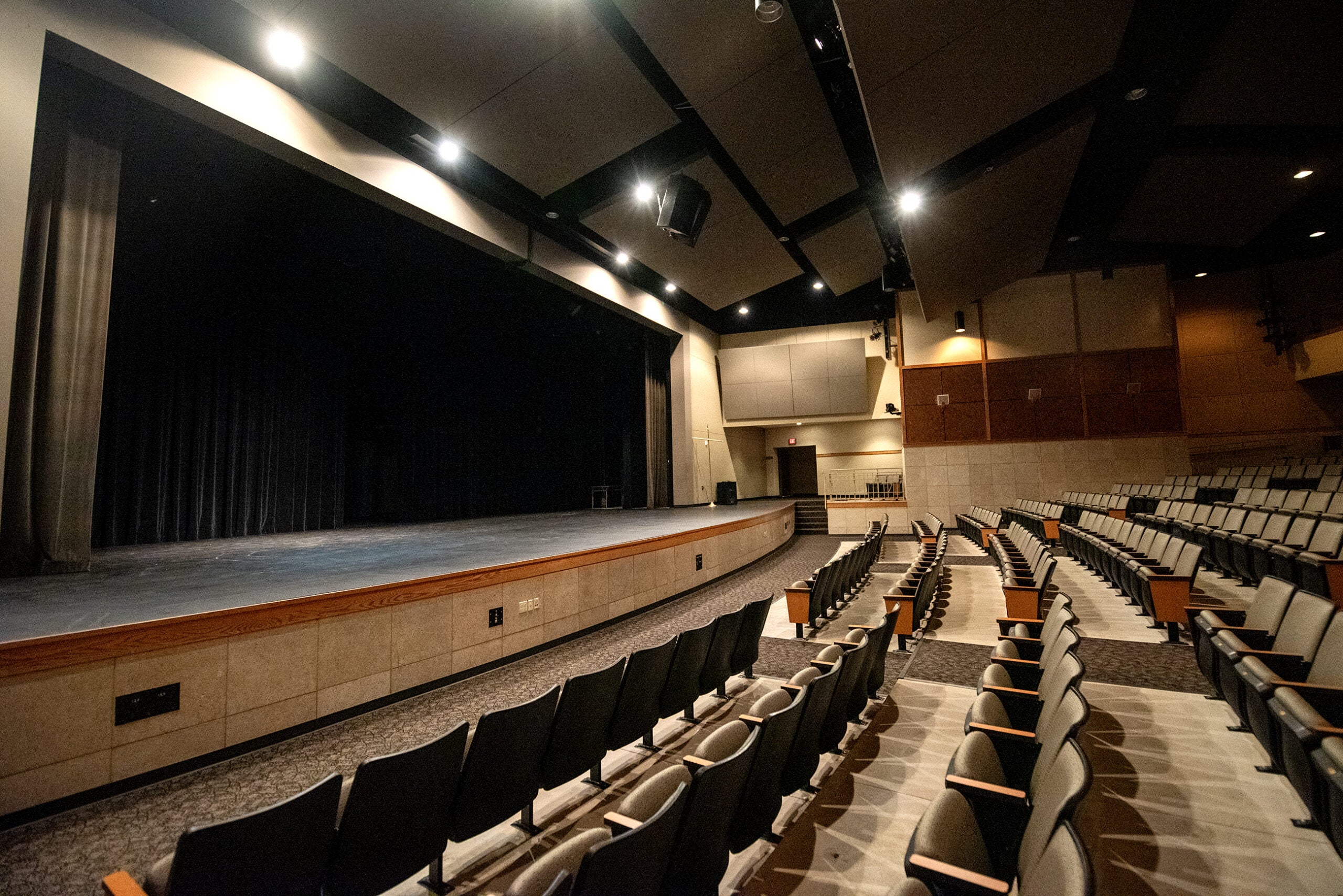
But the five County Board members who voted against the plan were skeptical. Kat Griffith, who represents Ripon on the board, said she likes many ideas in the plan but wanted more specifics when it came to financial information.
“I appreciate the vision, but I felt like it was too rushed,” she said. “I feel like too much was sacrificed to make it happen fast, and one of the things that was sacrificed was broader community input.”
When pressed about potential concerns or reservations about the plan, Kaufman said the county needed to act fast.
“The longer it would have just sat empty, you would have had issues with building, structure problems (because) no one’s taking care of it,” he said. “You have a fantastic neighborhood of residential homes here in this area, they don’t want to look at a bunch of empty buildings here.”
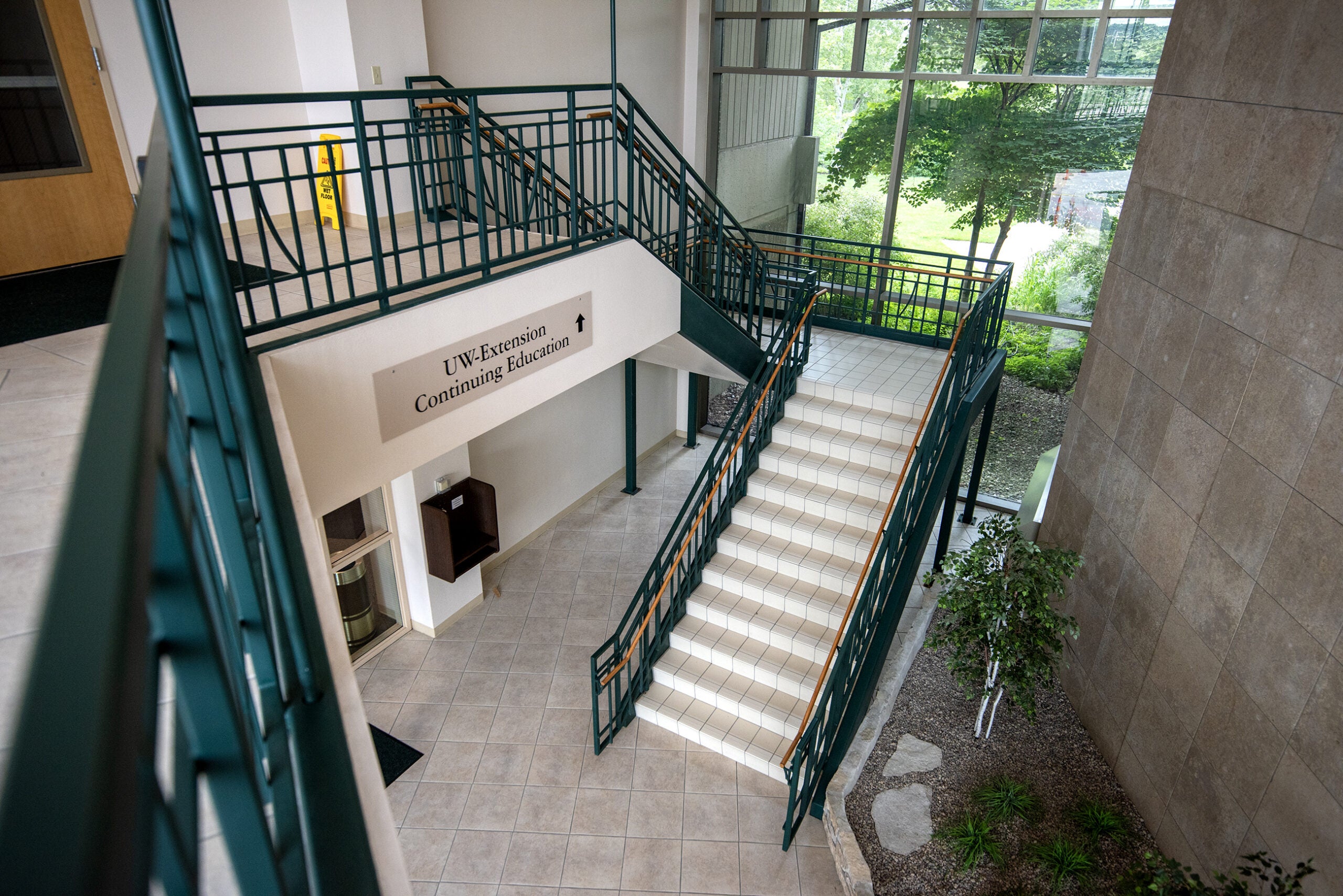
County plans for closed campuses vary
While Fond du Lac County is the farthest along, the remaining two-year campus sites are in varying stages of developing plans.
Richland
The first campus the Universities of Wisconsin announced would close was UW-Platteville’s two-year college in Richland Center, known locally as UW-Richland.
Richland County Board chair David Turk said his county is still in the process of determining what’s next for their campus in Richland Center by first trying to get a better understanding of the condition of the buildings.
The county hired a consultant to look at the property. It will hold a meeting this week to present those findings to the County Board and the community.
“We need to have a very good handle on what exactly we’re dealing with before we could even, in good conscience, talk to anybody else about using a building,” Turk said. “In a worst case scenario, you may find out it costs more to upgrade than it would to bulldoze and rebuild.”
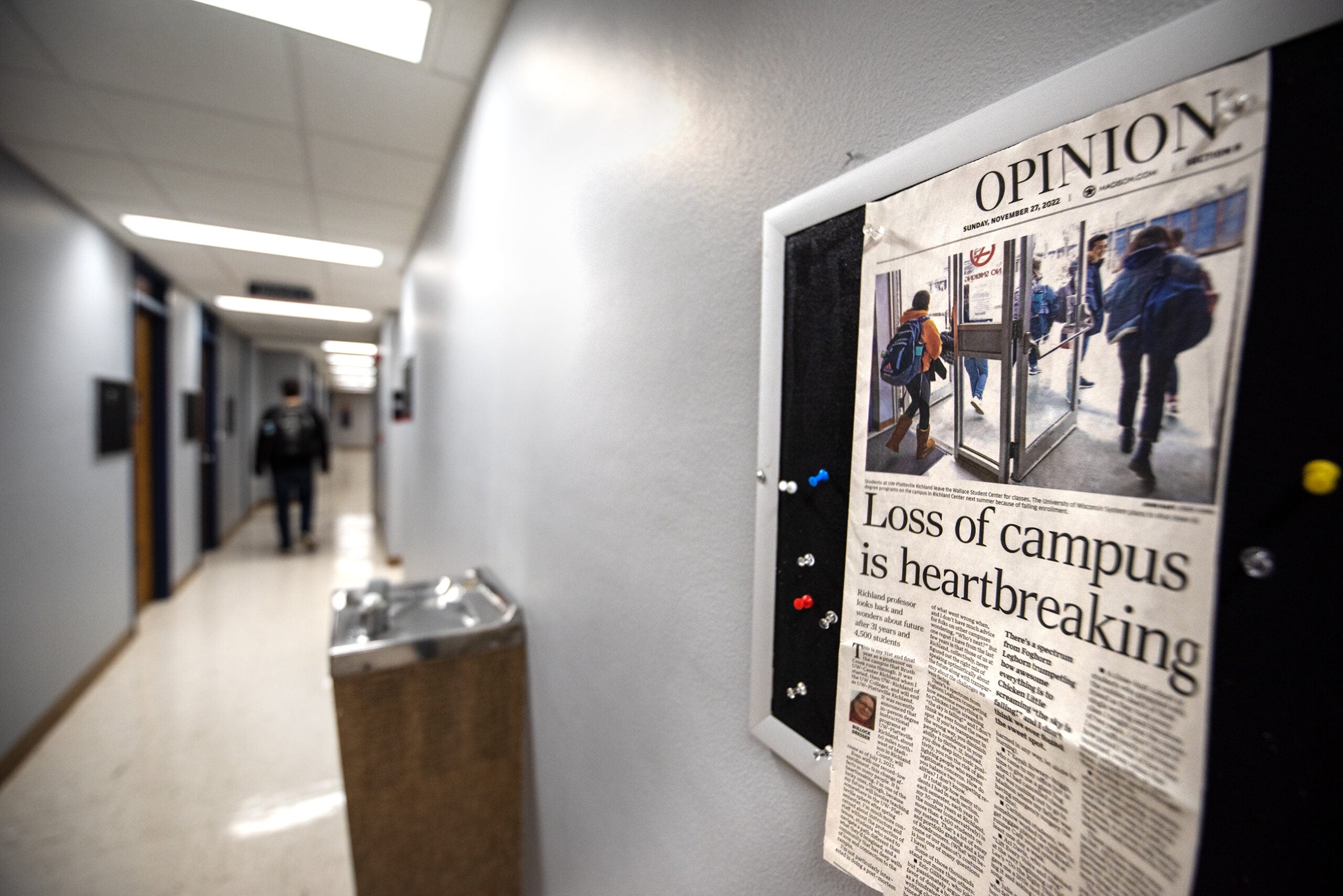
Marinette
UW-Green Bay’s two-year campus in Marinette will not have classes this fall. County officials are in the process of coming up with plans for what’s next.
Marinette County Administrator John Lefebvre said the county plans to retain the campus’ fine arts building, and is leasing the fieldhouse on campus to a local community pool association. He also said the local YMCA has expressed interest in acquiring the fieldhouse.
“What’s left is two buildings which we will need to repurpose or potentially even raze if we can’t find a good use,” Lefebvre said via email. “This campus is adjacent to Green Bay, so in its vacant state it should be prime real estate for redevelopment.”
Washington County
Washington County and West Bend co-own the UW-Milwaukee at Washington County campus. The county has proposed buying the city’s ownership stake to use the property as a community hub for local nonprofits and schools, according to County Executive Josh Schoemann.
The city and county had a meeting in mid-August, but no sale was approved at that time.
Waukesha
In Waukesha County, where UW-Milwaukee at Waukesha will close at the end of the spring 2025 semester, the county executive’s office said via email the county will take the next year to “thoroughly evaluate and consider” the best uses for the land and facility.
Fox Cities
The most recent campus to announce it would close is UW-Oshkosh’s two-year campus in Menasha, known locally as UW-Fox Cities or UW-Fox. The property is co-owned by Outagamie and Winnebago Counties. It will no longer have students after June 30, 2025.
Outagamie County Executive Tom Nelson said he’s been working closely with Winnebago County Executive Jon Doemel to look toward the campus’s future, but it’s still very early in the process.
Nelson said there are three main assets on the campus that the county wants to ensure continue to be used: a planetarium, an earth science museum and an arts center. Officials are still evaluating what potential partners are in the community that could continue to help the counties use those facilities.
Nelson singled out the Barlow Planetarium, which needs about $1.1 million in upgrades, as a property that must be maintained for future generations.
“We have thousands of school children from here to the Upper Peninsula that come to that campus,” he said. “That’s a pretty big deal.”
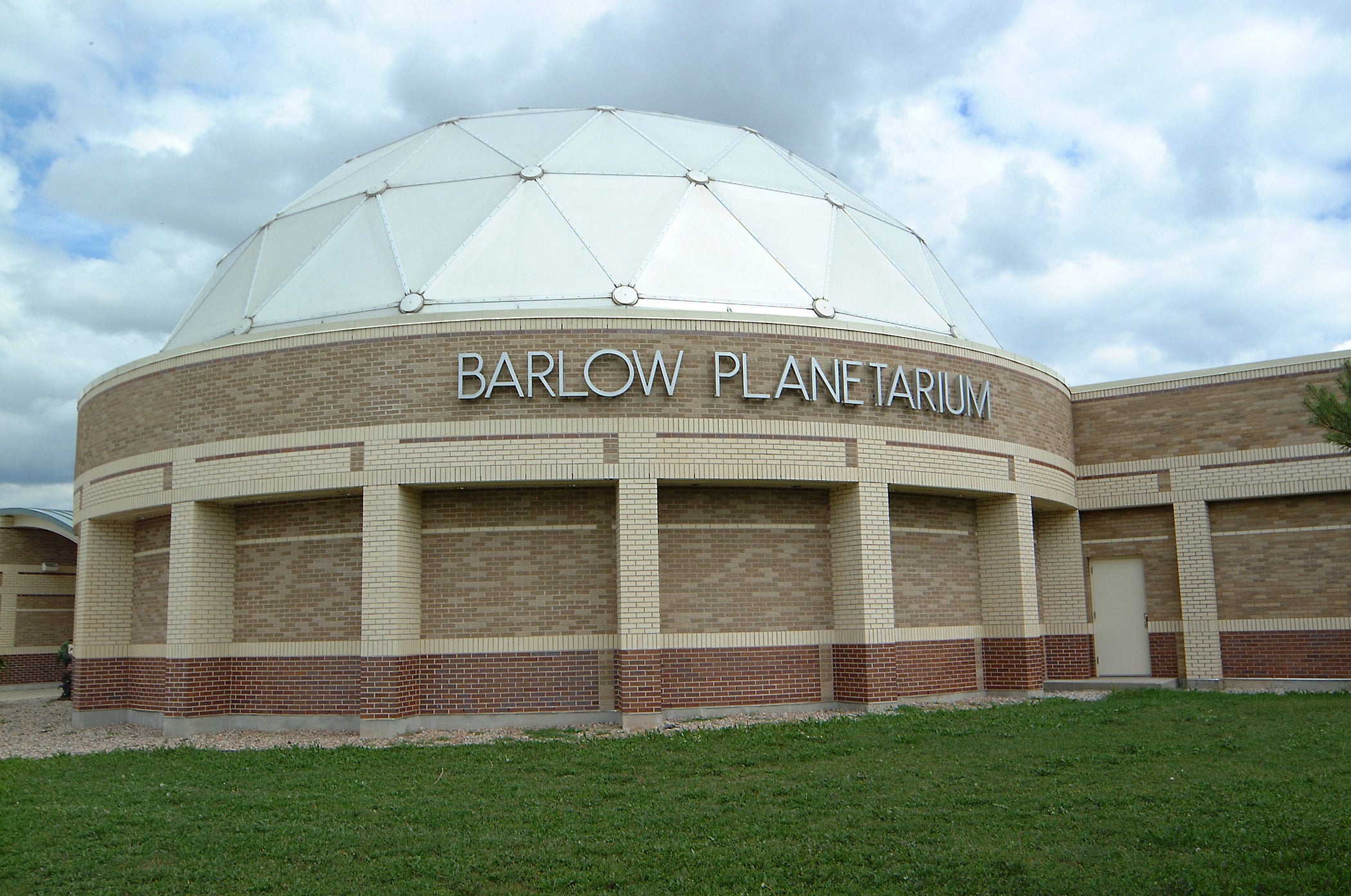
Leaders take issue with UW communication
Officials who spoke to WPR also described a pattern where the university system left them largely in the dark about the future of the campuses.
Kaufman in Fond du Lac said he found out the Fond du Lac campus was closing a day prior to the public announcement.
“It was poorly handled, and I felt it was very disrespectful in regard to the partnership we have had with the UW system since the ’60s,” Kaufman said. “When you look at the other schools, it’s the same pattern. They found out the morning of the announcement — you don’t do (that in) a partnership.”
Schoemann in Washington County said he believes a lack of a cohesive, comprehensive vision from the university system has led to the erosion of the two-year campuses.
“This downward spiral will continue until there’s vision … from the very top,” Schoemann said.
In Richland County, Turk said officials felt “blindsided” both when in-person classes ended and again when the university system announced it would vacate the campus entirely.
A spokesperson for the Universities of Wisconsin objected to the idea that it was leaving local officials in the dark.
“Since late last year, chancellors engaged with local officials to determine best uses for their branch campuses and develop strategies to maximize enrollment and use,” said system spokesperson Mark Pitsch. “Where possible, we are moving forward with viable plans while recognizing that the market demand for two-year degrees is down dramatically.”
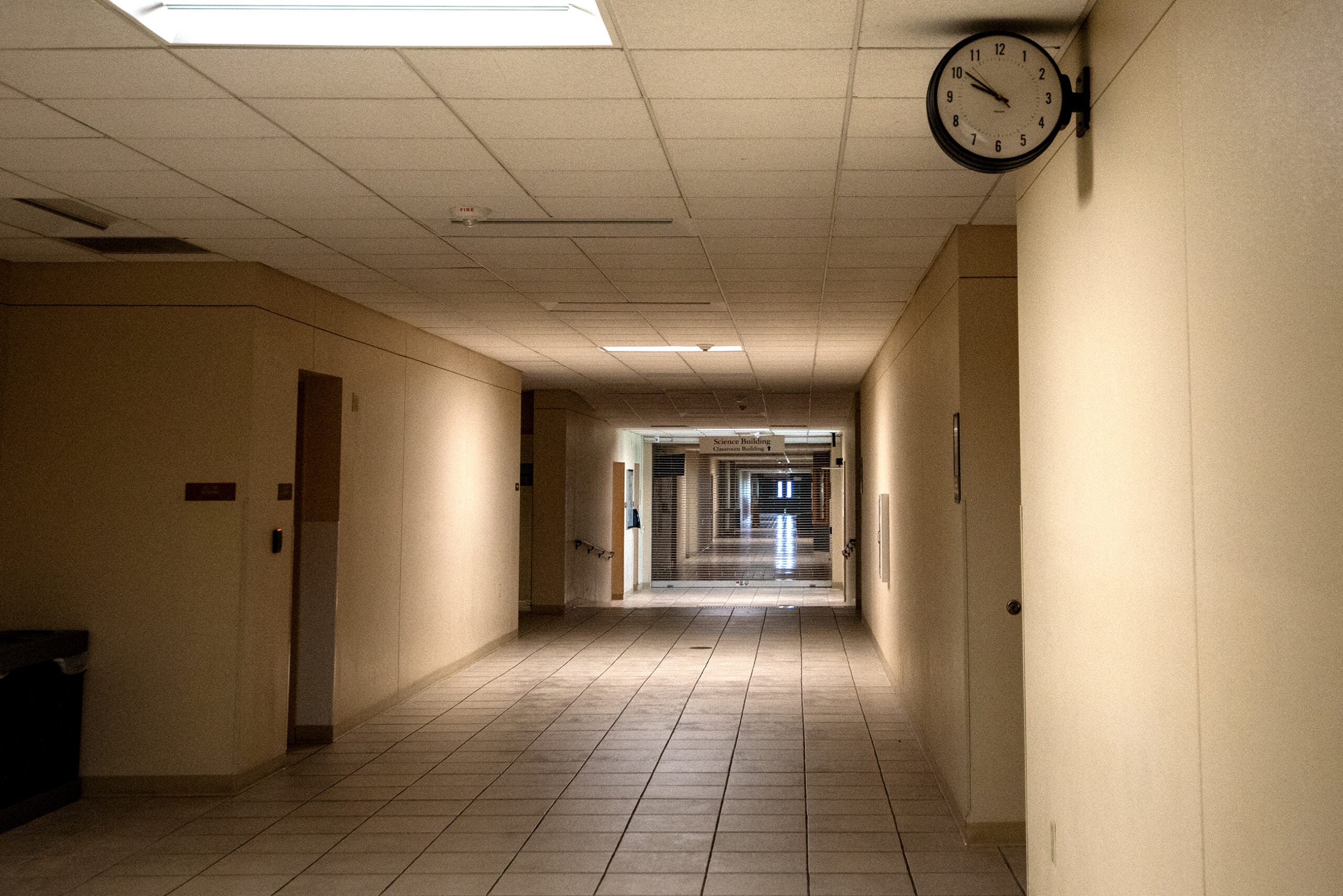
But the criticism wasn’t reserved for just the university system. Nelson said closing the Fox Cities campus means that the county no longer has to engage with “dishonest brokers,” referring to UW-Oshkosh officials.
Nelson said he tried repeatedly to schedule meetings with university officials about the campus’s future, leaving voicemails and even filing an open records request to learn what they planned to do with the site.
“Looking back, there was a rhyme and a reason,” he said. “They wanted to run out the clock and get in a position where they could shut down these campuses, wash their hands and be done with this.”
In fact, a university report titled “Future of the UWO Fox Cities Campus” was sent to UW-Oshkosh Chancellor Andrew Leavitt on April 30. It recommended closing the Menasha facility. UW-Oshkosh and the Universities of Wisconsin did not tell Nelson or the public they planned to close the campus until June 13.
In a statement, Alex Hummel, chief of staff to the UW-Oshkosh chancellor, said the university had regular communication with the campus’ board of trustees, a public body made up of officials from both counties, since UWO joined with the two-year campus in 2018.
Hummel said the report that recommended closing the campus was approved by Leavitt on May 16. It was then sent to the Universities of Wisconsin president, who approved it on June 10. Hummel says Leavitt announced the decision three days later.
“UWO’s liaison has repeatedly let county partners know we remain ready to participate in collaborative, good faith negotiations,” Hummel said.
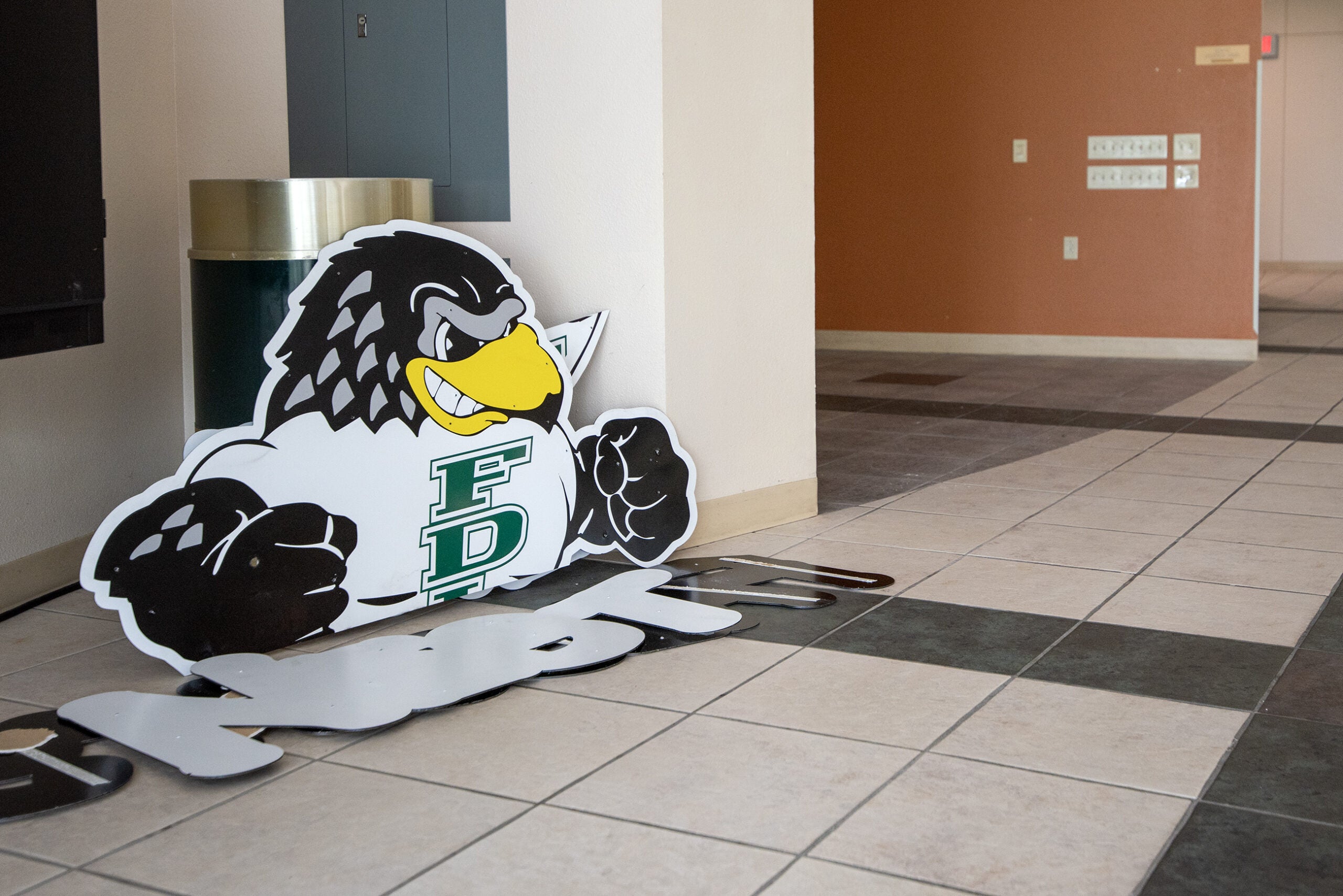
Declining enrollments, low state funding contributed to closures
Over the last decade, all of the Universities of Wisconsin two-year branch campuses have seen enrollment declines, according to data from the system. In 2014, there were 11,882 students enrolled at two-year UW campuses, not counting students who were enrolled in UW Colleges Online. In 2023, two-year UW campuses had 4,876 students.
Over the same period, overall enrollment across the UW system has decreased from 180,979 to 162,531, according to state data.
Thomas Harnisch, vice president for government relations for the State Higher Education Executive Officers Association, said the enrollment declines have come as universities across the country, particularly in the Midwest and the northeast, face demographic shifts.
“We’re really seeing the challenges in the regional publics and smaller, less endowed private colleges,” Harnisch said. “For those types of institutions, they’re primarily drawing from students from the region, and just that they’re drawing from a they’re competing for a smaller pool of students.”
At the same time, Wisconsin ranks 43rd of 50 states in public funding of four-year higher education, including revenues from tuition and state funding, according to the latest State Higher Education Finance report by the State Higher Education Executive Officers Association.
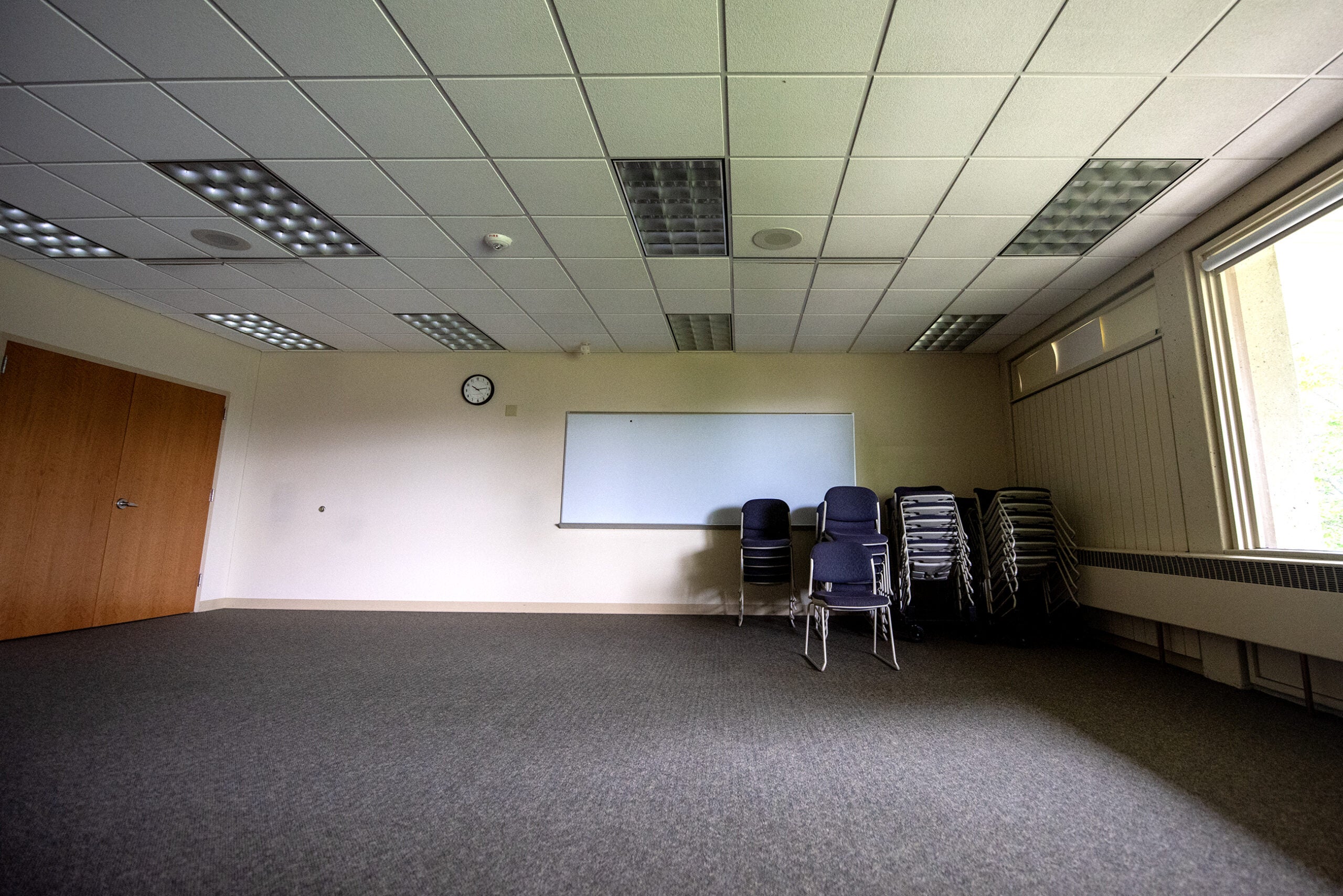
Last month, Rothman proposed a $855 million budget increase in the next two-year state budget, which university system officials say would increase Wisconsin’s rank from 43rd to the national median. The system says the increase would help “preserve access points for students” across the state, like the two-year campuses.
Even if it’s approved, that would come too late for campuses like the one in Fond du Lac.
Kaufman says he hopes the former college site can help meet community needs for things like senior housing and better offices for county staff. He also said the law enforcement training aspect will pair well with the local sheriff’s office’s use of force simulator, which is used by agencies up and down the I-41 corridor.
“We’re very excited about this possibility,” Kaufman said. “The whole idea was to create something for the future of our campus.”
Wisconsin Public Radio, © Copyright 2025, Board of Regents of the University of Wisconsin System and Wisconsin Educational Communications Board.
